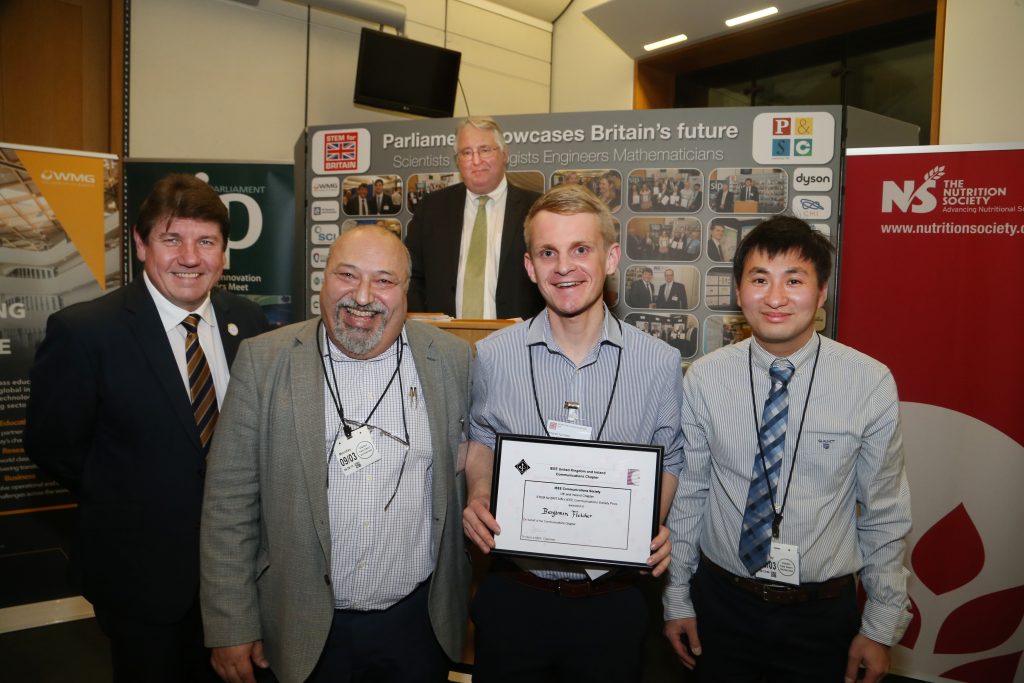Arm-ECS PhD students fuel collaboration
University of Southampton - An Arm Research Centre of Excellence
This blog post originally appeared on the Arm website.
Arm supports academic research and recognises the importance of maintaining strong links between academia and industry for continued research innovation. As part of this mission, Arm Research Collaborations have established seven Centres of Excellence (CoE), broadening research opportunities and strengthening links through a range of activities, including sponsoring students completing their PhDs. Part of a blog series, we look at the inspirational work each of our Centers are undertaking, fueling research success and collaboration between academia and industry.
The Arm-ECS Centre of Excellence at the University of Southampton research interests primarily lie within intermittent and low power compute. Awarded ‘Research Group of the Year’ in 2015 from the NMI, the Centre was founded in 2008 as a result of the successful research collaboration between Professor Bashir Al-Hashimi’s group and Arm. Publishing ground-breaking research in highly respected conferences and journals, the university-industry collaboration offers students a unique experience to get involved with academic research, and engage in industry practice. We are currently part-sponsoring three students at Southampton, all of which are currently working with us at Arm Cambridge; keep reading to find out more about their research projects.
Tim Daulby – Hardware-Assisted Checkpointing Techniques in Intermittent Computing Systems
Arm Supervisor: Anand Savanth
Academic Supervisors: Alex Weddell and Geoff Merrett
Tim is in the third year of his PhD, and is currently based in Arm Research, Cambridge until August 2020, where he is focusing on RTL design and benchmarking for Intermittent Computing. Tim’s research aims to improve the efficiency of checkpointing based approaches for intermittent computing, utilizing characteristics of the hardware and energy harvesters powering the device. He aims to further explore additional hardware adaptions for intermittent computing systems for on-chip implementation, further increasing computation achieved with a given intermittent supply. As well as this, Tim is investigating the burden intermittent compute places on embedded software development.
“Majority of prior intermittent compute (IC) works have targeted at 16b CPUs. Tim’s work is among many recent efforts to study IC on Arm M-class CPUs. A potential outcome of this research would be a platform for academics to qualify IC strategies for Arm CPUs. NVM has a strong influence on IC strategies and Tim’s research is expected to guide the evaluation of emerging NVM technologies. Aside of the broad theoretical analysis, Tim’s research is aimed at developing proven IC techniques for Arm powered SoCs to be used in battery-less IoT leaf nodes.”
Anand Savanth – Principal Research Engineer
Ben Fletcher – Design of Cost-Effective 3D-ICs using Near-Field Inter-Tier Wireless Communication
Arm Supervisor: Shidhartha Das
Academic Supervisor: Terrence Mak
Close to completing his PhD, Ben has joined us in Arm Research, Cambridge, working in the Devices, Circuits and Systems group to further his research in 3D integrated circuits (3D-ICs). His research explores an alternative to TSVs for low cost straightforward ‘Lego-like’ 3D integration, where dies can be stacked with no additional back-end fabrication processing. More specifically, investigating the use of inductive coupling to transmit data and power wirelessly between tiers in a 3D-IC, to simplify (and reduce the cost of) the die stacking process. Ben has already made an impression in Arm Research, writing a successful blog series about his work, and recently winning the prestigious IEEE ComSoc award at STEM for Britain. To learn more about Ben’s work, take a look at his blog series on 3D integration.

Ben Fletcher receives his prize at STEM for Britain. Image copyright: John Deehan Photography Ltd.
“This work makes two primary contributions that will foster future work in academia and industry. Firstly, it demonstrates a cost-effective way of building SoCs where the peripheral bus spans multiple dies. This has interesting applications where dies built in disparate process technologies can be designed into a SoC just by stacking one on top of another. Secondly, the project has achieved impressive metrics, demonstrating the smallest link-area (achieving 7.8x area reduction compared to SoTA!) whilst achieving simultaneous power and data transfer.”
Shidhartha Das – Senior Principal Research Engineer
Sivert Sliper – Off and On Again: Optimising Intermittent Computing Systems
Arm Supervisor: William Wang
Academic Supervisors: Geoff Merrett and Alex Weddell
Sivert’s research aims to optimise intermittent computing systems at the software and hardware architecture level, contributing to the emergence of ubiquitous battery-less computing devices. Completing a year at Southampton and spending the remainder of his PhD in Arm Research, Cambridge, full-system simulator, specifically targeted toward modelling the interactions between energy-availability, energy-consumption and execution that is inherent in intermittent computing. In the future, the simulator will be used to explore how best to exploit the characteristics of future embedded non-volatile memories to enable reliable and efficient intermittent computing.
“This project explores the use of NVM for intermittent computing systems, as the industry moves towards one trillion IoT devices, many such devices will be intermittently powered, NVM provides the promise of enabling fast and efficient switch off and then on again, also as MCUs scale below 28nm, NVM provides a promising alternative to replacing eNOR flash and disrupting on-chip SRAM.”
William Wang – Staff Research Engineer

